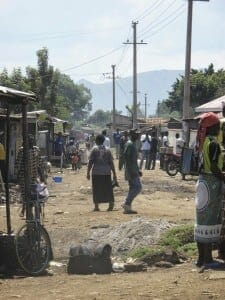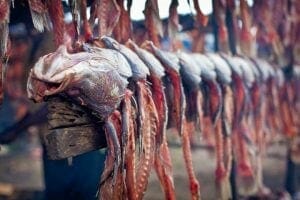When you hear the word “slum,” what do you think of? Some think of the ghettos in the United States; others think of the movie Slum Dog Millionaire. Many think of them as disgusting and dirty while others call them home. People sometimes blame the conditions on the residents themselves, tell those living in slum communities they should just leave or that they got themselves into that mess, so they will have to pull themselves up by their bootstraps and get out of it.
For our students, the vast majority of them were born in a slum called Obunga. It is the only community they know. It is hard, but it is home. That doesn’t mean they want to leave it the way it is, but, much of the time, they lack resources and knowledge on how to improve it. That is one of the reasons Ndoto began. Our vision is to see forgotten slum communities transformed from the inside out. We want to give this upcoming generation the tools they need to bring lasting change to their community. We want to allow them to dream for a different Obunga.
Obunga is a slum in the northwest part of Kisumu, Kenya, which is right on the edge of Lake Victoria. It houses around 15,000-20,000 people, most of whom are young men and women with little education. Parents usually have many children and try to provide but can only do so by working random and inconsistent jobs. People come to Obunga from many villages in the countryside but once they land there, they rarely leave.
Obunga has a character all its own that brings many challenges. A lack of capital and jobs keeps residents entangled in poverty, and forces some into desperate jobs like prostitution. The community has two primary businesses: selling fish and the brewing of illegal alcohol.
Since Obunga is near Lake Victoria, the opportunity to buy and sell fish should be a great one. However, the factories get the fish first, remove the fillets, and then sell the remains of the fish to women called fishmongers. These women will be up in the wee hours of the morning, work very hard all day, and at the end of the week, they may have gotten 2 bags of fish, or there may have been nothing to sell. When it’s all said and done, a fishmonger will make at best $200 USD in a month. One of the many problems with this business is that it is so unpredictable, which leaves families unstable and without provision much of the time.
Largely, if the women don’t sell fish, they brew alcohol. The bad news: the two brews made in Obunga, chang’aa “kill me quick” and busaa, are both illegal. The worse news: the brew contains substances such as jet fuel, formaldehyde, and battery acid to make it more potent, and in turn incredibly lethal. Because it is illegal, the women who brew the alcohol have to consistently bribe police to stay in business and not go to jail. Without bribes, a brewer might make upwards of $12 USD per week. The work of brewing alcohol is incredibly tough from morning to night. Women haul molasses, take 2-3 days to make the brew, and are often harassed from customers that have had one too many drinks. It is a popular pastime of mostly male community residents. Most men in the community usually work as motorcycle taxi drivers, handcart pullers, or construction workers.
These industries are incredibly inconsistent, extremely hard work, and often times less than desirable, but these women will do whatever it takes to provide for their families. Most parents have not been to school past 8th grade, and are, therefore, untrained for more promising jobs. It is a rare few that can fight their way through the system to make a different life for themselves and their families.
This is why we are giving the next generation opportunities to further their education and be more able to change their community. We want to raise up students that love their community and want to see it grow. We dream of a different Obunga that is improved and changed by its very own residents, an Obunga that is redeemed for the name of Jesus Christ and restored for His glory to the newness of life. We dream of seeing Isaiah 61:4 come to fruition: “They will rebuild the ancient ruins and restore the places long devastated; they will renew the ruined cities that have been devastated for generations.”



